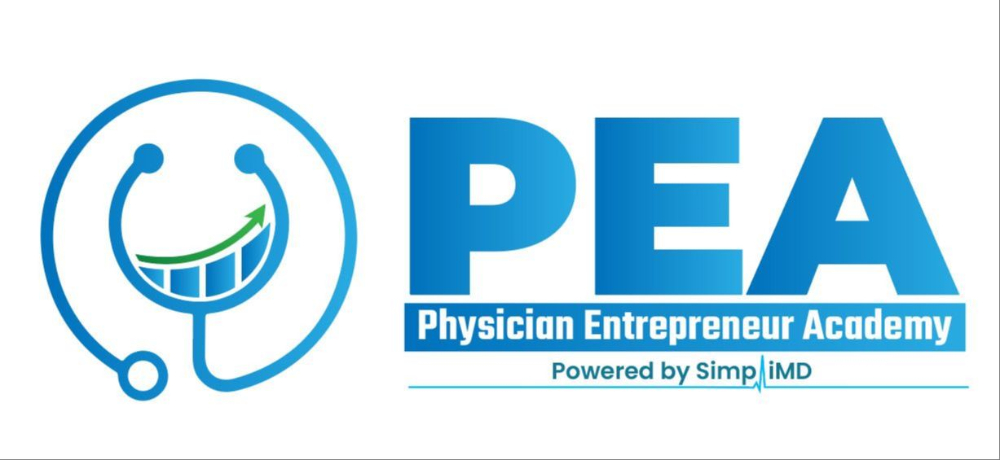7 Mistakes Physicians Make When Hiring a Financial Advisor
Apr 23, 2025This Week’s Ownership Mindset:
Work with a Financial Advisor, But Choose Wisely
If you’re like most physicians I coach, your income has been high—but your wealth-building trajectory may not reflect it. That disconnect often stems from one subtle but critical decision: who you trust with your money.
SmartAsset recently reported that working with a good financial advisor could potentially add 36% to 212% more to your portfolio value over a lifetime.¹ That’s not chump change. But here's the catch—not all advisors are created equal. And hiring the wrong one could cost you not just money, but momentum, freedom, and peace of mind.
As a micro-corporation owner, you’re not just a clinician—you’re a CEO. That means your financial strategy must be tightly aligned with your business structure, tax planning, and exit goals. You need an advisor who doesn’t just dabble in working with doctors—they specialize in us.
So today, I want to help you avoid seven common mistakes I see physicians make when hiring a financial advisor—and show you a better path forward.
The 7 Mistakes Physicians Make When Hiring a Financial Advisor
1. Choosing Based on Personality, Not Competence
Your advisor isn’t your buddy—they’re your fiduciary. You don’t need a golf partner; you need someone who can explain advanced tax strategy, optimize your corporate retirement plans, and maximize post-exit liquidity. Don’t be charmed. Be discerning.
➡️ Want to learn how to retain more of what you earn? Download my free e-book: Four Strategies for Doctors to Retain More of Their Earnings
2. Working with a Commission-Based Advisor
Be cautious if your advisor earns money from selling products, as you can never be certain whether their advice is unbiased. It's wise to seek out fee-only fiduciaries, as these professionals are legally obligated to prioritize your best interests.
💡 Earned Wealth is one example of a physician-focused, fee-only firm that understands micro-business ownership and long-term wealth creation. Check them out as a vetted partner of the PEA-SimpliMD community.
3. Ignoring the Advisor’s Niche Experience
A generalist simply won't suffice in this situation. In the complex world of financial management and tax planning, having someone who understands the intricacies and specialized language of Schedule K-1s, S-Corp distributions, 199A deductions, and defined benefit plans is essential.
These are not just technical terms; they represent critical components of sophisticated financial strategies that require expert navigation. When seeking professional assistance, it's vital to inquire specifically about their experience and expertise in handling such unique aspects.
Ask pointed questions like: “How many physicians do you currently work with who own a micro-corporation?” This question isn't just a formality—it's a crucial step in ensuring that you engage someone who has hands-on experience with cases similar to yours, particularly those involving professionals like physicians who often have complex financial portfolios. Without this expertise, there’s a risk of overlooking nuances that could lead to costly errors or missed opportunities for optimization.
4. Focusing Only on Investments
Financial planning is not synonymous with investment management. A competent advisor should help you with:
-
Tax-efficient withdrawal strategies
-
Risk management
-
Estate planning
-
Business succession
-
And yes, portfolio design
Your money is not an island—it’s part of your physician-entrepreneur ecosystem.
📘 Related Reading: Five Steps for Physicians to Grow Their Net Worth Without Burnout
5. Overlooking the Advisor’s Planning Process
Ask what their onboarding looks like. Do they use an integrated tech stack? Will they proactively coordinate with your CPA? Do they optimize across all five areas of financial planning: income, taxes, insurance, investments, and legacy?
6. Assuming Credentials Equal Competence
Many doctors assume that a CFP® designation means the advisor is great. Not always. Credentials are baseline. Dig deeper into client success stories, Google reviews, and testimonials. Interview more than one candidate.
7. Failing to Re-Evaluate Periodically
Life changes. So should your financial team. Annual check-ins aren't enough—especially when you’re scaling your side hustles, building a DPC or telehealth business, or preparing for a liquidity event.
If your advisor still thinks like you’re a W-2 employee and not the owner of a growing micro-business… it's time to upgrade.
📚 Case Study: Dr. Peterson’s Pivot
Dr. Julia Peterson, a PEA Pro member and seasoned OB-GYN, was referred to a high-profile advisory firm early in her career. They managed her 401(k), but offered no strategic planning. No S-Corp optimization. No tax harvesting. No retirement income simulation.
After joining the PEA-SimpliMD coaching program, she shifted her business to a micro-corp, downloaded our 12 Tax Secrets Every Physician Entrepreneur Should Know, and switched to a fee-only advisor who specialized in physicians.
Over the next 18 months, she:
-
Cut her tax bill by 23%
-
Added a defined benefit plan
-
Positioned herself for a 7-figure retirement runway
Her comment? “I finally felt like I was in control. For the first time, I had a financial strategy built around my business, not just my income.”
🔁 Throwback Wisdom:
“You don’t need a financial babysitter. You need a partner who sees your business as an asset, not a liability.” — Doctor Incorporated: Stop the Insanity 📖 Read More on the Independent Physician Blog
🚪 Identity Shift Step
Still thinking like an employee? It’s time to own your time, your work, and your income.
🟩 Start Your Transition with a PEA Explorer Membership →
Or…
📘 Download: The Entrepreneurial Physician’s ESCAPE From Corporate Medicine →
🧠 Final Thought
When you form a micro-corp, you graduate from being a passive participant in your finances to the CEO of your wealth strategy.
Don’t let an unqualified or misaligned advisor hijack that journey.
Choose boldly. Ask the hard questions. And remember—you are the asset.
You can find a nice e-book download summary of this post here: 7 Mistakes Physicians Make When Hiring a Financial Advisor


